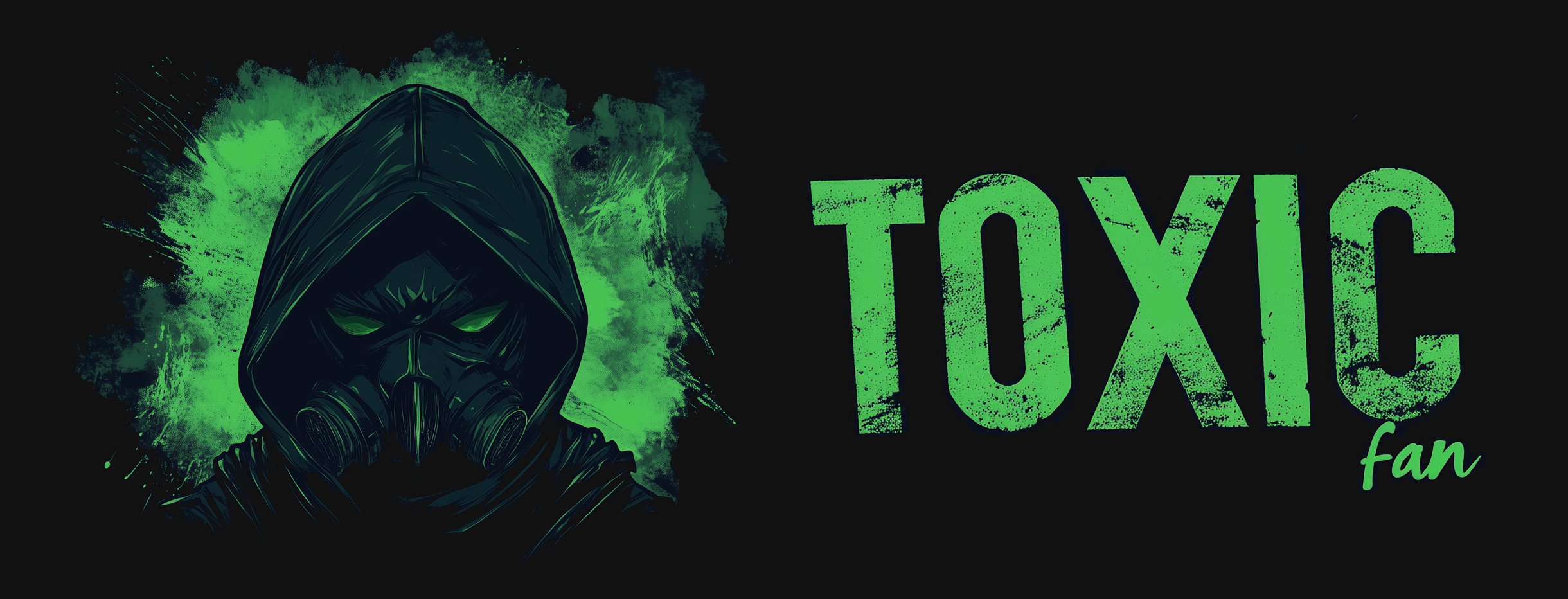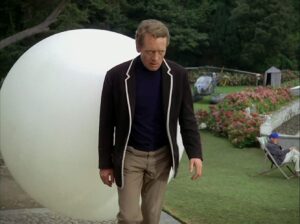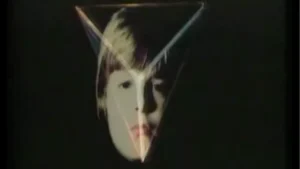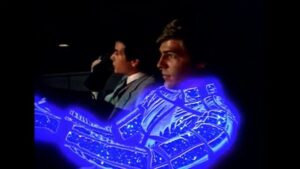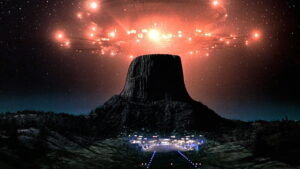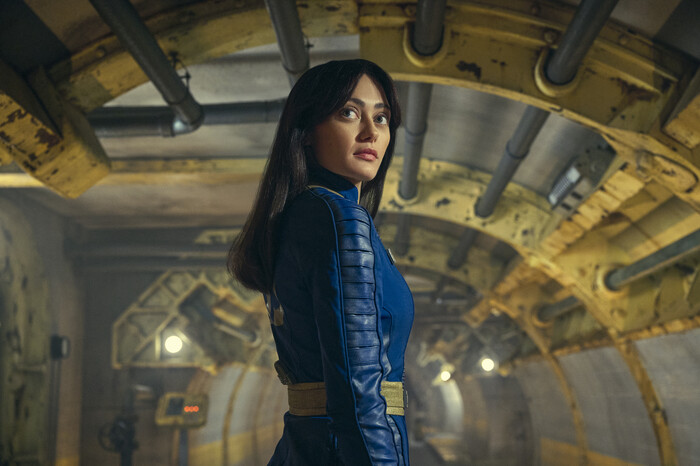
Ella Purnell (Lucy). Photo Credit: Prime Video
Well, slap a Pip-Boy on my wrist and call me a Vault Dweller – “Fallout” just pulled a fast one on us all. In a world where video game adaptations usually land with all the grace of a Super Mutant attempting ballet, Amazon’s “Fallout” series has emerged from the vault of development hell not just intact, but actually… good? Cue the collective gasp from cynics everywhere.
Let’s face it, we’ve been burned before. The post-apocalyptic genre has been done to death, reanimated, and done to death again. But “Fallout” swaggers into this irradiated landscape with the confidence of a Deathclaw in a Radroach nest.
The show nails the retro-futuristic aesthetic harder than a VATS-assisted headshot. From the eerily cheerful Vault-Tec propaganda to the rusted remnants of a world frozen in 1950s optimism, every frame screams “Fallout” louder than a feral ghoul with a megaphone.
Meet Lucy (Ella Purnell), our Vault Dweller protagonist. She’s got the wide-eyed naivety of someone who’s spent their life underground, paired with the determination of a Radstag in mating season. Watching her navigate the wasteland is like seeing a golden retriever try to play chess – adorably clueless, yet somehow making it work.
Then there’s Maximus (Aaron Moten), a squire in the Brotherhood of Steel who takes himself more seriously than a Mister Handy with an existential crisis. His journey from stick-in-the-mud to… slightly-bent-stick-in-the-mud is surprisingly engaging.
Against all odds, “Fallout” has managed to avoid the dreaded video game adaptation curse. It’s not just “good for a video game show” – it’s legitimately good television.
And let’s not forget The Ghoul (Walton Goggins). Goggins chews through the irradiated scenery with the gusto of a Yao Guai at an all-you-can-eat brahmin buffet. He’s the perfect blend of charming and terrifying, like if your cool uncle was also a walking corpse with a penchant for violence.
Going in, we expected a plot as thin as Vault-Tec’s ethics policy. But color us pleasantly radioactive – the story actually has more layers than a well-crafted set of armor. It weaves together personal quests, factional politics, and good old-fashioned wasteland weirdness with surprising deftness.
Sure, there are moments where the logic is more twisted than a Centaur’s family tree, but hey, this is “Fallout.” If you wanted pure realism, you’d be watching documentaries about actual nuclear wastelands (snooze).
For the eagle-eyed fans, this show is more packed with references than a Super Mutant’s shopping list. From subtle nods to the games to blatant fan service, “Fallout” strikes a balance that’ll have newcomers intrigued and die-hard fans squealing like a Radscorpion in a tub of Rad-Away.
Is it perfect? Of course not. Some of the CGI looks like it was rendered on a terminal from the actual 1950s, and occasionally the dialogue is cheesier than a moldy box of Fancy Lads Snack Cakes. But these missteps are as rare as finding an intact bottle of Nuka-Cola in a raider camp.
Against all odds, “Fallout” has managed to avoid the dreaded video game adaptation curse. It’s not just “good for a video game show” – it’s legitimately good television. It captures the spirit of the games – that unique blend of dark humor, retro-futuristic charm, and post-apocalyptic grit – while carving out its own identity faster than a Deathclaw through wet tissue paper.
So, grab your Pip-Boy, stock up on Rad-X, and give “Fallout” a watch. Just remember: patrolling the Mojave almost makes you wish for a nuclear winter, but binging this show might make you glad it happened.
War. War never changes. But our expectations for video game adaptations? They just did.
